Being out in nature while enjoying a family safari away from the stresses of everyday life holds many benefits for your loved ones. Family safaris are also about creating great memories as a unit, as they provide an ideal environment to truly be in each moment and enjoy it fully. Ensuring you have adequate health insurance, including coverage for border-crossing breaks, is crucial for a family safari.
It’s a safety net that provides peace of mind, regardless of the healthcare facilities at your destination. Let’s look at some health and wellness preparations you should consider before booking this rewarding travel experience that lets your family bond on a new and exciting level.
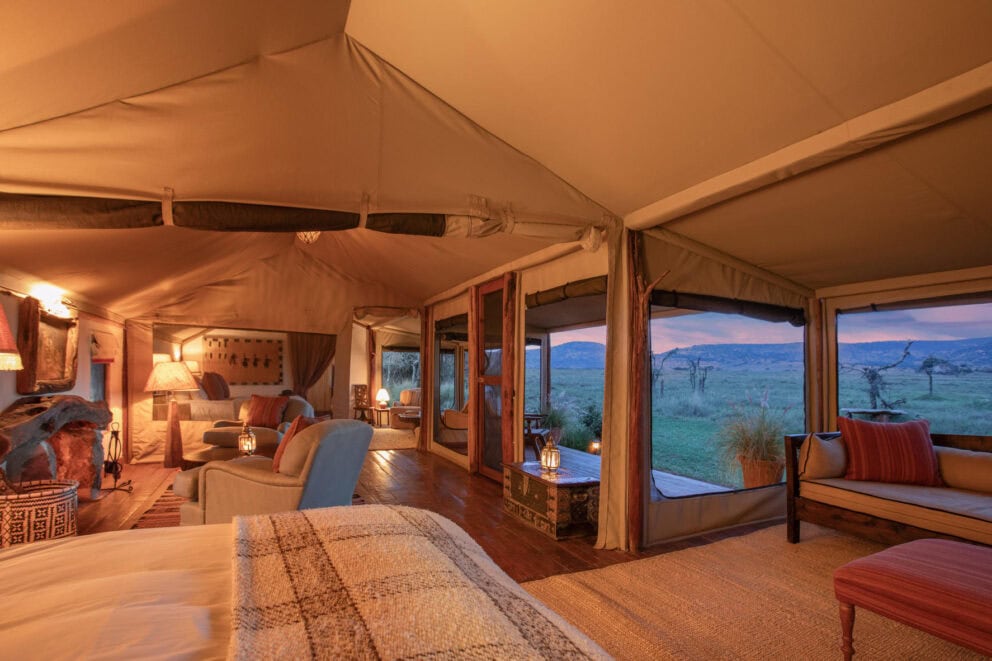
Pre-Trip Preparations for a Family Safari
Vaccinations and Health Checks
- Visit a healthcare practitioner before leaving. Recommended vaccinations include yellow fever, typhoid, and hepatitis A and B.
- Familiarise yourself with health advisories in the safari region you’re going to.
- Get a regular health check to make sure you are fit to travel and refill your prescriptions.
Travel Insurance
- Comprehensive travel insurance is necessary, as it will cover any damages or medical emergencies that may occur.
- To get the correct insurance, you need to answer questionnaires honestly so you can get a suitable package. Consider cancellation cover for non-refundable deposits and prepaid trips that are cancelled for covered reasons, medical expenses, and emergency evacuation benefits.
Tip: Opt for a lodge with family-friendly accommodation. Enasoit Camp in Kenya (pictured above) boasts a family tent with two interconnecting rooms.
Health Considerations During a Family Safari
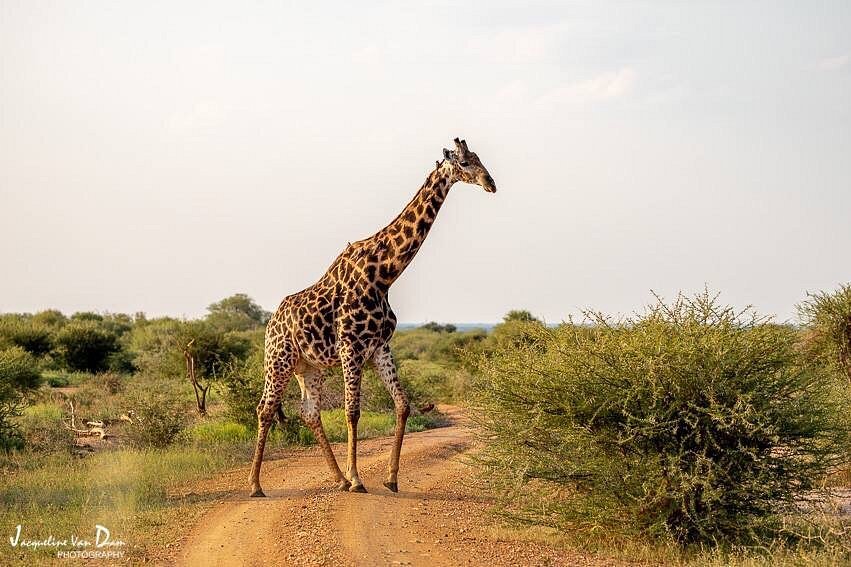
Malaria Prevention
- Use insect repellents, cover your body, use mosquito bed nets, and only drink purified water.
- Spray insect repellent on your clothes for extra protection or buy a product with permethrin to treat your clothes and bed net to repel mosquitoes.
- Consider choosing a malaria-free reserve for your family safari. Madikwe Game Reserve in South Africa offers malaria-free safari adventures with incredible family-friendly accommodations, like Madikwe Safari Lelapa Lodge. Lelapa has a kids’ activity programme to help ignite a love for nature in the younger members of your group.
Sun Protection
- Best practices for sun protection include broad-spectrum sunscreen, UV-protective clothing, sunglasses, and hats. Keep to shaded areas and avoid surfaces that reflect damaging sun rays. Stay hydrated, limit your time in the sun, and apply SPF-infused lip balm to protect your lips.
- To stay hydrated in dry, hot environments, drink lots of water and avoid sugary drinks and alcohol, as they will dehydrate you more. Eat fruits with higher water content, like watermelon and strawberries. Spicy foods activate your body to cool off when you sweat.
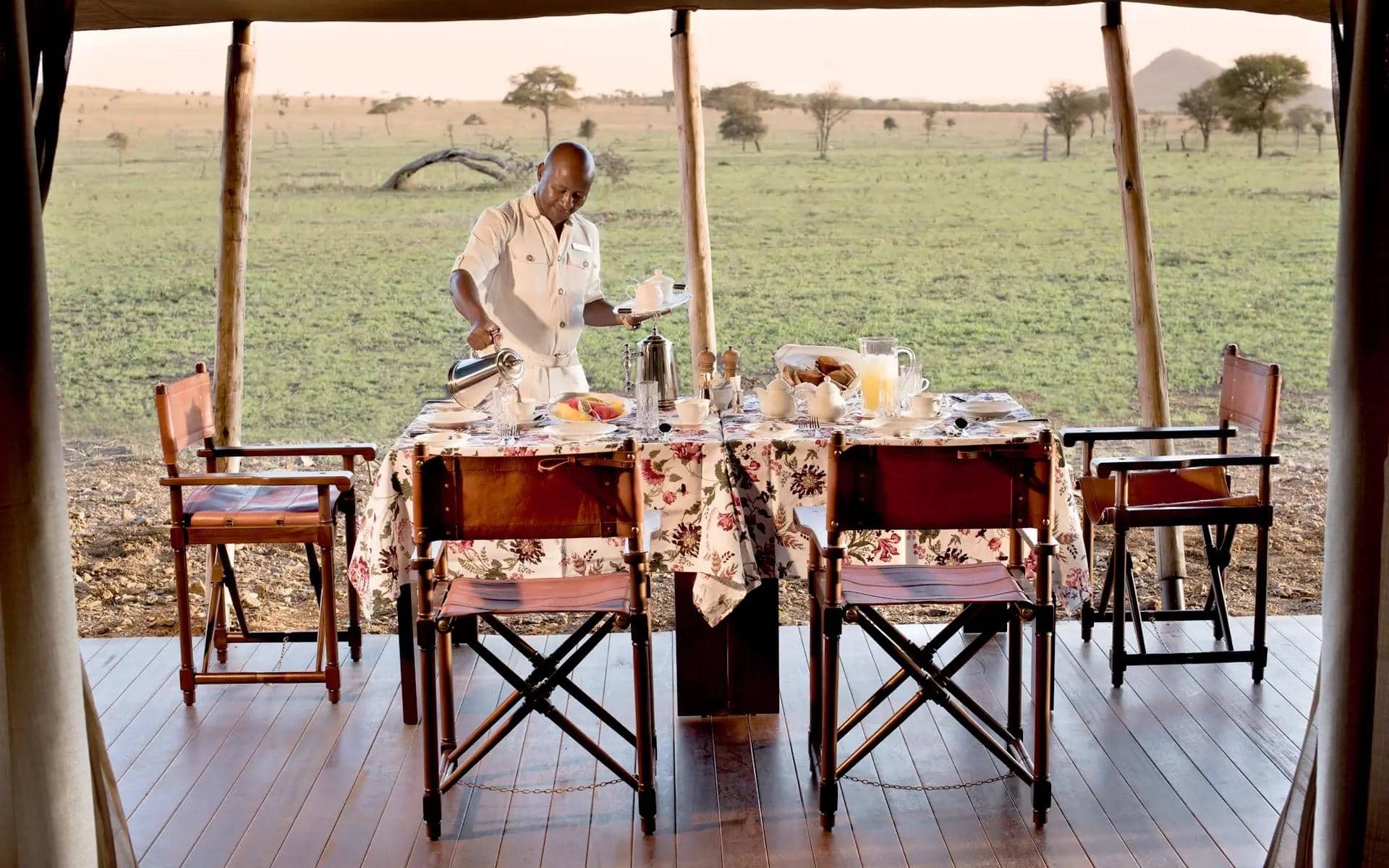
Healthy Eating and Hydration
- When you’re staying at a premier African safari lodge, you don’t have to worry about meals! At One Nature Nyaruswiga in the Serengeti (pictured above), you and your family can indulge in world-class dining experiences. Here, meals are inspired by the rich local cultural heritage.
- It’s important to stay hydrated while on safari. Keep a reusable water bottle with you for hydration on the go, especially when out exploring the wilderness.
Safety and Wellness Essentials for a Family Safari
First Aid Kit Essentials
Your kit must always be well stocked, kept in a cool, dry place, and away from children. It should at least contain different-sized and -shaped plasters, painkillers, allergy medications, sterile disposable gloves, thermometers, scissors and tweezers, antiseptic creams, alcohol-free cleansing wipes, eye wash, and skin rash and insect bite relieving cream.
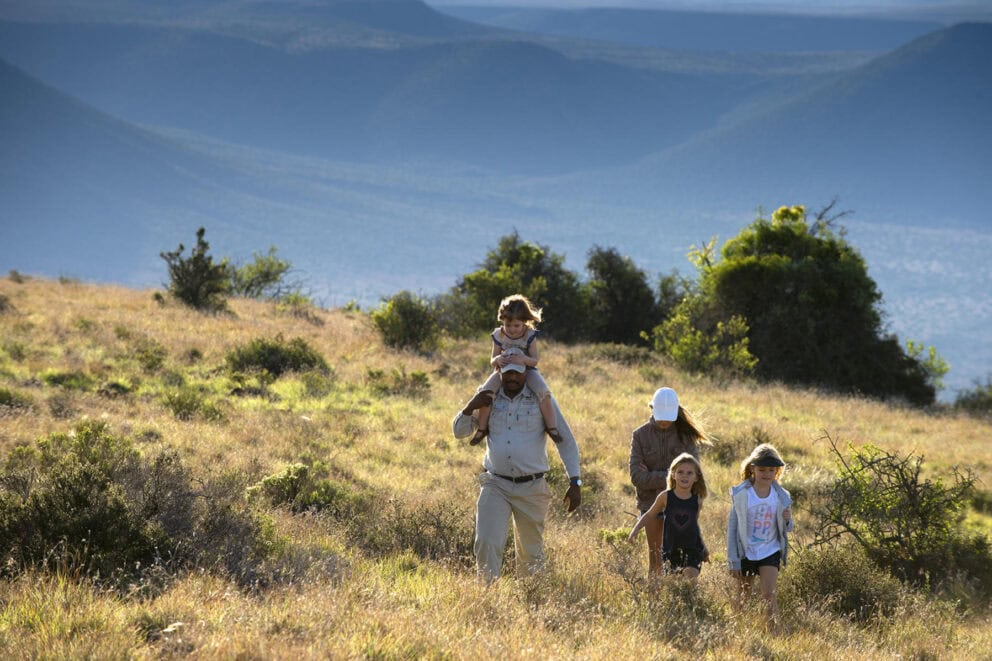
Wildlife Safety Education
- Teaching children not to interact with the animals, to keep their whole body inside the safari vehicle at all times, and not to make excessive noise is essential. Emphasise how that is for their safety and overall enjoyment of the experience.
- Adhering to safari guide instructions will enhance the experience and ensure everyone’s safety.
Tip: Choose a safari lodge with a dedicated kids’ programme. At the Samara Karoo Lodge, kids are enrolled in the Samara Cubs Programme, which is filled with activities such as track identification, Khoi-San painting, and navigating.
Personal Wellbeing on Safari
- An African safari can be jam-packed with activities! Make sure to give your body and mind sufficient rest. Consider sleeping early so you can wake up energised for the day ahead (morning safaris often start before sunrise).
- Meditate, read, take advantage of the safari lodge’s pool and spa (if available), and do some yoga (many lodges offer yoga mats). Drinking adequate amounts of water and eating well will also help maintain the balance between rest and physical demands.
Appropriate Dressing
Opt for comfortable clothes in safari-appropriate colours and closed, sturdy shoes. Flip-flops are usually fine around the safari lodge.
Physical Fitness Requirements
Safari activities like guided walks require a certain level of physical fitness; this depends entirely on the duration of the walk and the terrain.
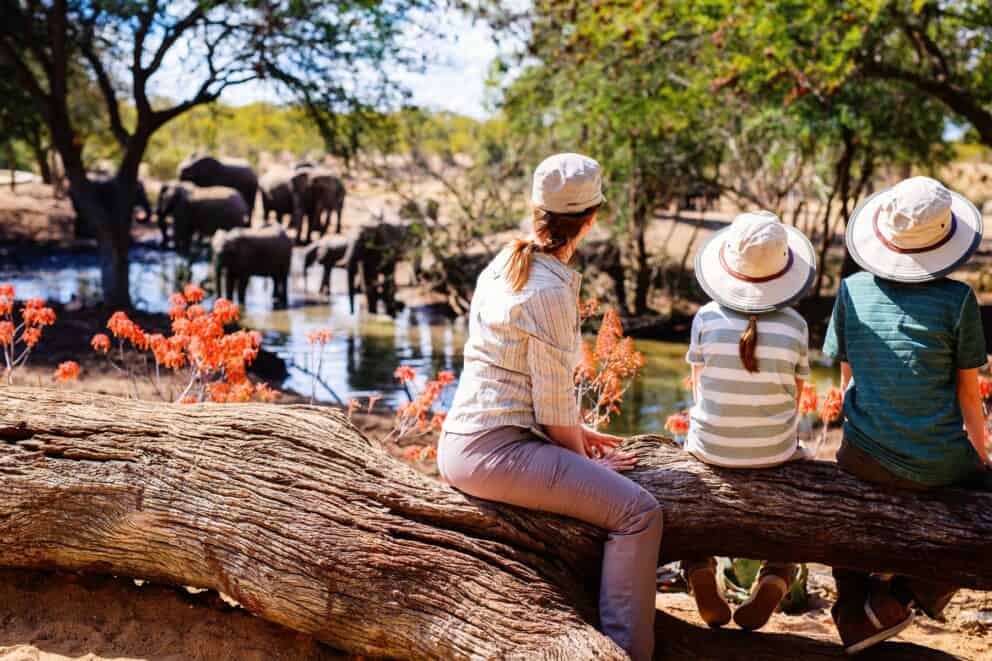
Emergency Preparedness and Environmental Respect
Local Medical Facilities
Update your and your family members’ medical files and emergency contacts for any emergencies that may occur.
Avoiding Contact with Wild Animals
Understanding the risks of disease transmission from wildlife is crucial; rather, admire them from afar.
Environmental Responsibility
Always respect the animals you encounter and the landscapes you explore while on safari. This includes leaving no trace you were there (in other words, taking any rubbish with you) and keeping your distance from wildlife.
Additional Health Tips
Altitude Sickness Awareness
Know the common symptoms and stop immediately when they become apparent. Make sure to have appropriate medication, assess the situation, and take your time.
Regular Hand Washing
Pocket-sized, waterless hand sanitisers are ideal for this case. Make sure the alcohol content is enough to kill all known germs.
Family safaris are more fun when well prepared. Take into consideration your family’s allergies and other illnesses when planning. Get everyone physically and mentally fit, and teach environmental responsibility and wildlife safety tips.
Ready to start planning your family safari to Africa? Reach out to our Discover Africa travel experts to start planning today.






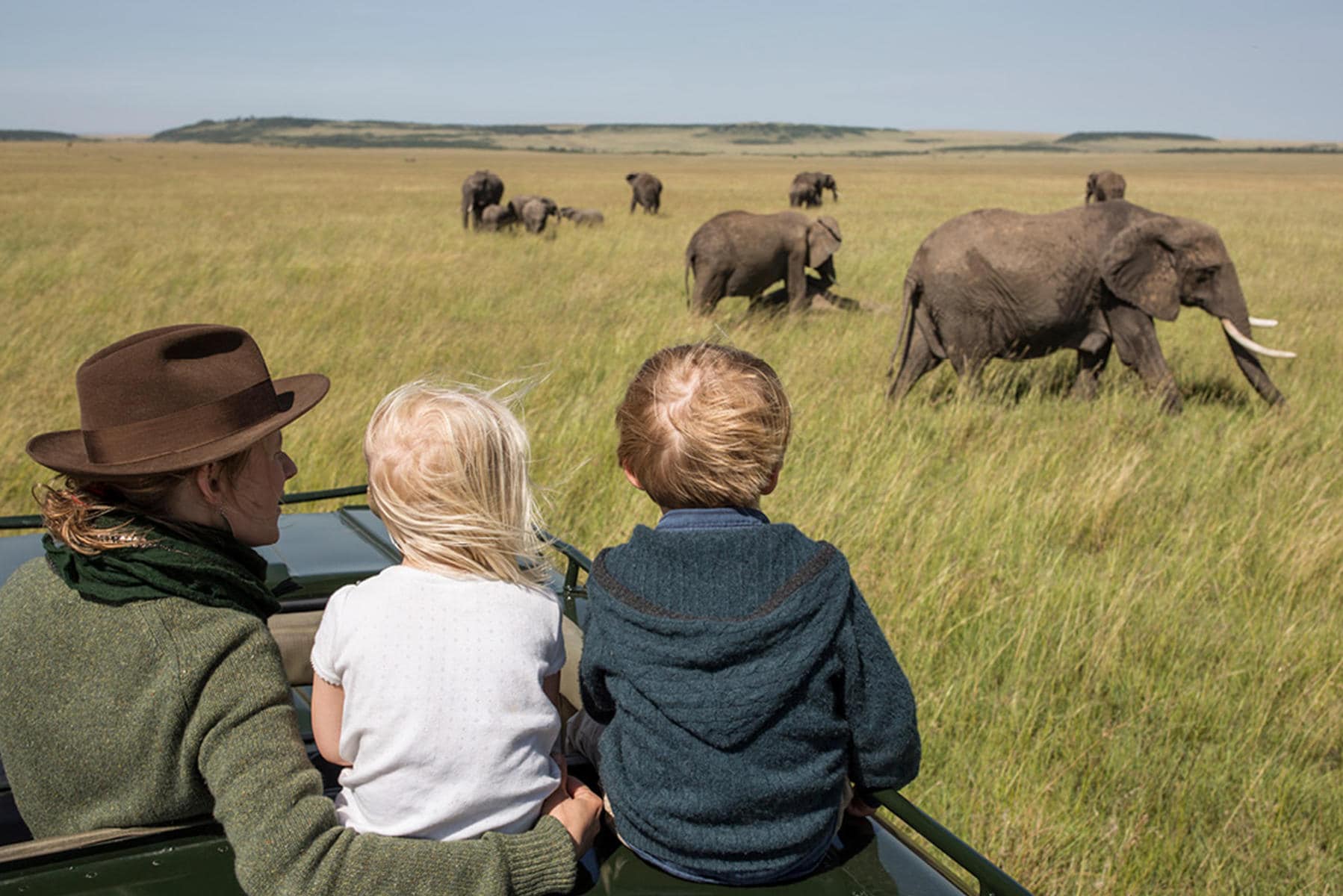



 Blog List
Blog List













Written by Micky Baker
• Travel Writer
Verified by Alice Lombard
• Destination Expert